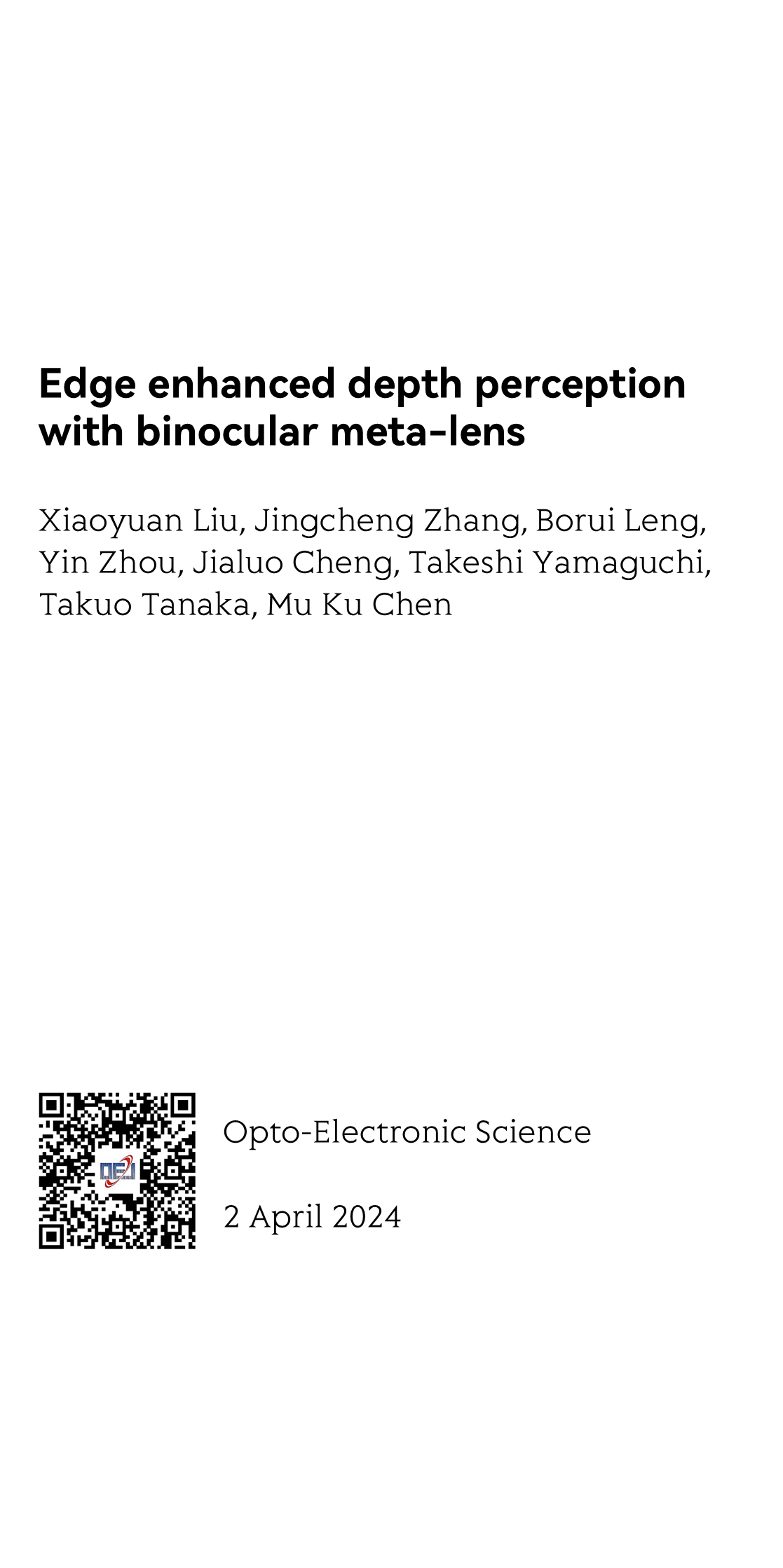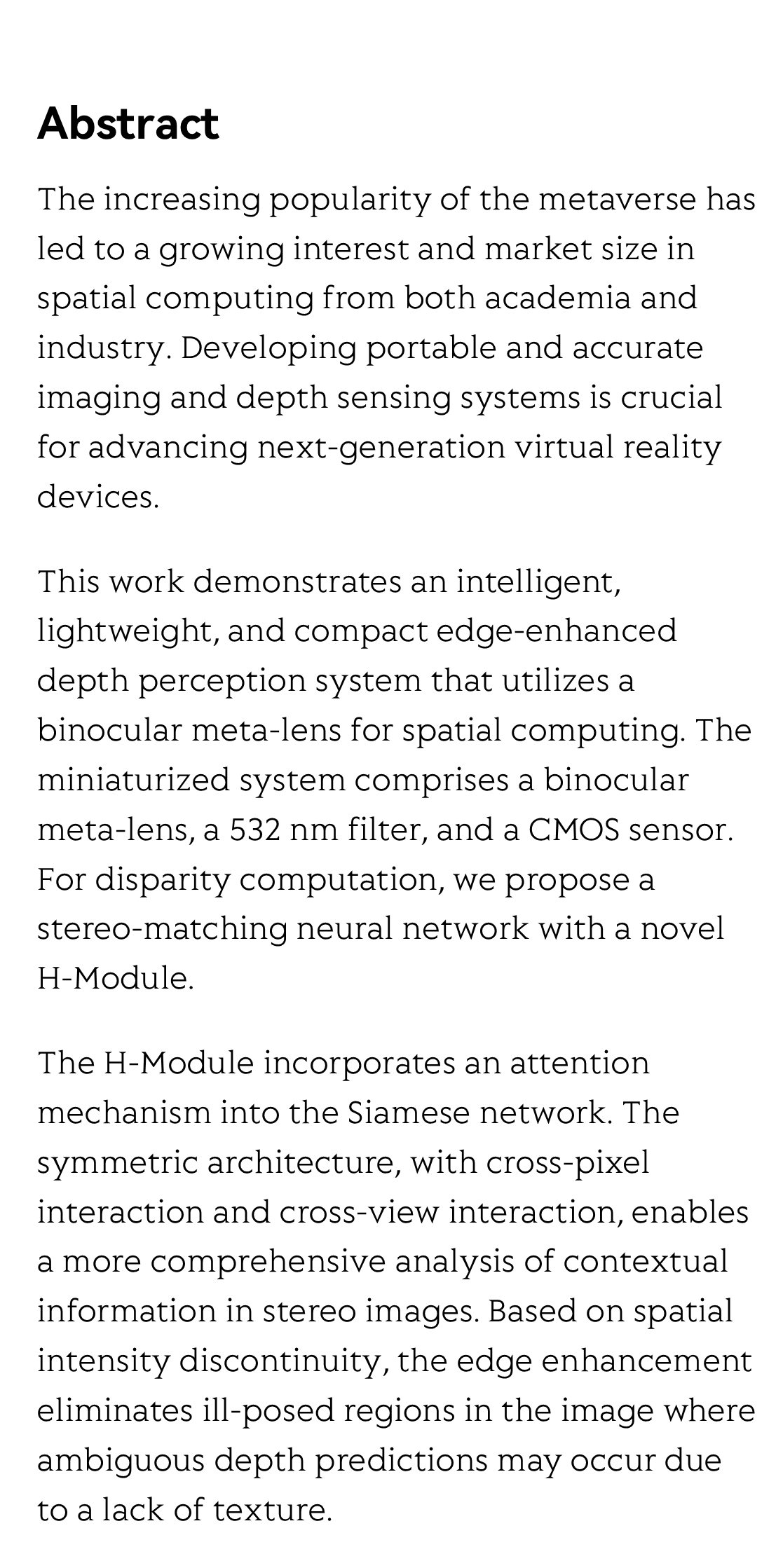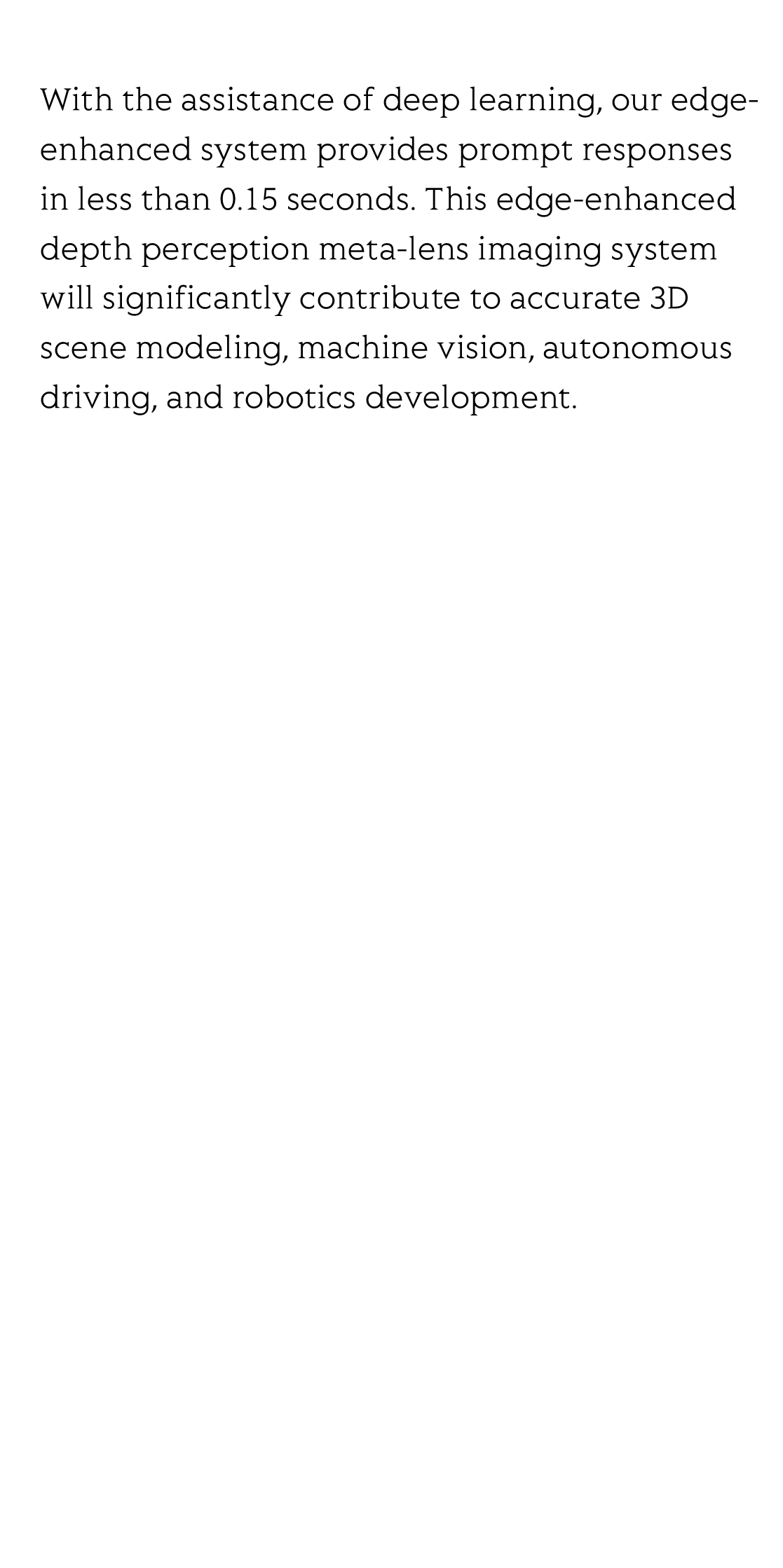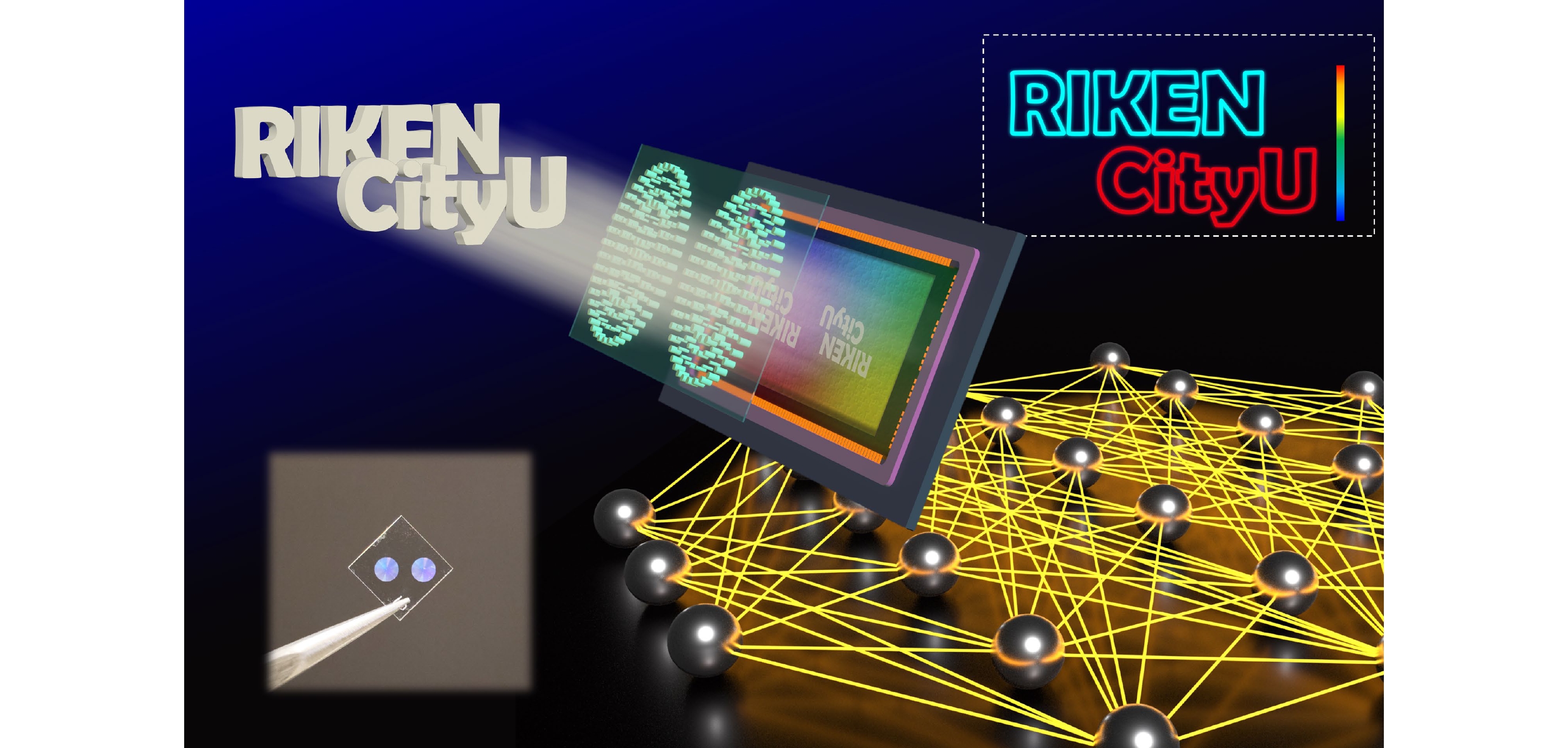(Peer-Reviewed) Edge enhanced depth perception with binocular meta-lens
Xiaoyuan Liu 刘小源 ¹ ² ³, Jingcheng Zhang 张景程 ¹, Borui Leng 冷柏锐 ¹, Yin Zhou 周寅 ¹, Jialuo Cheng 程家洛 ¹, Takeshi Yamaguchi ⁴ ⁵ ⁶, Takuo Tanaka ⁴ ⁵ ⁶, Mu Ku Chen 陈沐谷 ¹ ² ³
¹ Department of Electrical Engineering, City University of Hong Kong, Hong Kong SAR 999077, China
中国 香港 香港城市大学 电机工程学系
² Centre for Biosystems, Neuroscience, and Nanotechnology, City University of Hong Kong, Hong Kong SAR 999077, China
中国 香港 香港城市大学 生物系统、神经科学和纳米技术中心
³ The State Key Laboratory of Terahertz and Millimeter Waves, and Nanotechnology, City University of Hong Kong, Hong Kong SAR 999077, China
中国 香港 香港城市大学太赫兹及毫米波国家重点实验室
⁴ Innovative Photon Manipulation Research Team, RIKEN Center for Advanced Photonics, 351-0198, Japan
⁵ Metamaterial Laboratory, RIKEN Cluster for Pioneering Research, 351-0198, Japan
⁶ Institute of Post-LED Photonics, Tokushima University, 770-8506, Japan
Opto-Electronic Science, 2024-04-02
Abstract
The increasing popularity of the metaverse has led to a growing interest and market size in spatial computing from both academia and industry. Developing portable and accurate imaging and depth sensing systems is crucial for advancing next-generation virtual reality devices.
This work demonstrates an intelligent, lightweight, and compact edge-enhanced depth perception system that utilizes a binocular meta-lens for spatial computing. The miniaturized system comprises a binocular meta-lens, a 532 nm filter, and a CMOS sensor. For disparity computation, we propose a stereo-matching neural network with a novel H-Module.
The H-Module incorporates an attention mechanism into the Siamese network. The symmetric architecture, with cross-pixel interaction and cross-view interaction, enables a more comprehensive analysis of contextual information in stereo images. Based on spatial intensity discontinuity, the edge enhancement eliminates ill-posed regions in the image where ambiguous depth predictions may occur due to a lack of texture.
With the assistance of deep learning, our edge-enhanced system provides prompt responses in less than 0.15 seconds. This edge-enhanced depth perception meta-lens imaging system will significantly contribute to accurate 3D scene modeling, machine vision, autonomous driving, and robotics development.
A review on optical torques: from engineered light fields to objects
Tao He, Jingyao Zhang, Din Ping Tsai, Junxiao Zhou, Haiyang Huang, Weicheng Yi, Zeyong Wei Yan Zu, Qinghua Song, Zhanshan Wang, Cheng-Wei Qiu, Yuzhi Shi, Xinbin Cheng
Opto-Electronic Science
2025-11-25
Flicker minimization in power-saving displays enabled by measurement of difference in flexoelectric coefficients and displacement-current in positive dielectric anisotropy liquid crystals
Junho Jung, HaYoung Jung, GyuRi Choi, HanByeol Park, Sun-Mi Park, Ki-Sun Kwon, Heui-Seok Jin, Dong-Jin Lee, Hoon Jeong, JeongKi Park, Byeong Koo Kim, Seung Hee Lee, MinSu Kim
Opto-Electronic Advances
2025-09-25







